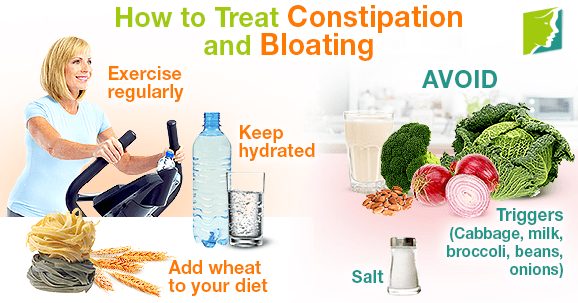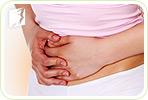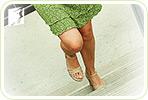Constipation and bloating can feel similar in some ways, but they are in fact very different and have their own causes. Although they usually disappear with time, sufferers are understandably keen to treat them as quickly as possible. Keep reading to find out more about constipation and bloating and how to relieve yourself of them.
Constipation
Constipation is an inability to pass stools regularly or to completely empty the bowel. In addition, the stools can be hard or lumpy or unusually large or small. Because a person has trouble releasing stools, they build up in the bowel, leading to a sensation of pain or discomfort. This can also reduce appetite, as the sufferer feels it only causes more “congestion.” Severity can vary, as can the specific symptoms experienced. Possible causes of constipation are:
- Not eating enough fiber, found in fruit, vegetables, and cereals
- Change in eating habits
- Certain medications
- Dehydration
- Anxiety
- Depression
Bloating
Bloating can also result in pain and discomfort in the abdominal area, but this is related to water retention and trapped gas rather than feces. The bloating can often occur soon after eating and generally goes away on its own. However, some people experience it often and wish to know how to avoid it. Fortunately, there are a number of ways to treat bloating at home.
How to Treat Constipation and Bloating
There are various medications for constipation, which many people find useful, but it is also possible to treat and prevent it through various lifestyle changes and daily habits. A few examples are:
Increase intake of fiber, such as fruit, vegetables, and cereals.
Adding wheat or bran to your diet should help make your stools softer and easier to pass.
Avoid dehydration by drinking plenty of water.
Try to get at least 30 minutes of daily exercise.
Respond to your bowel's natural pattern - it is important not to delay going to the bathroom when you feel the urge to pass a stool.
Try resting your feet on a low stool while going to the toilet so that your knees are above your hips, as this can make it easier to pass stools.
In the case of bloating, there are many treatments, and it is possible to treat and prevent it through lifestyle changes.
Be aware of triggers. Commonly-known triggers of bloating are beans, broccoli, onions, milk, bread, and cabbage. Try avoiding these or cutting down on consumption for bloating relief.
Avoid salt. Sodium encourages water retention in the body.
Eat smaller portions. Large portions slow digestion and mean that food is sitting in the stomach for longer, releasing gases.
Eat more slowly. This will prevent you from swallowing air and will allow the enzymes in the saliva to begin the digestive process.
Keep hydrated. Even a small amount of dehydration will result in water retention and bloating.
Exercise regularly. This helps blocked gas pass through the body and also increases blood flow to the digestive system, helping it work more efficiently.
There is no doubt that constipation and bloating are uncomfortable and can interfere with daily activities, but they are normally not a sign of anything serious and can be treated quite easily. Making a few lifestyle changes, such as those above, should help relieve any discomfort arising from constipation and bloating.
Sources
- American College of Gastroenterology. (2014). Digestive Health Tips. Retrieved November 6, 2014, from http://patients.gi.org/topics/digestive-health-tips/
- National Health Service UK. (2014). Beat the bloat. Retrieved November 6, 2014, from http://www.nhs.uk/Livewell/digestive-health/Pages/beat-the-bloat.aspx
- National Health Service UK. (2014). Constipation. Retrieved November 6, 2014, from http://www.nhs.uk/conditions/constipation/Pages/Introduction.aspx
- National Health Service UK. (2014). Constipation - Treatment. Retrieved November 6, 2014, from http://www.nhs.uk/Conditions/Constipation/Pages/Treatment.aspx
- National Institutes of Health. (2014). Gas - flatulence. Retrieved November 6, 2014, from http://www.nlm.nih.gov/medlineplus/ency/article/003124.htm




